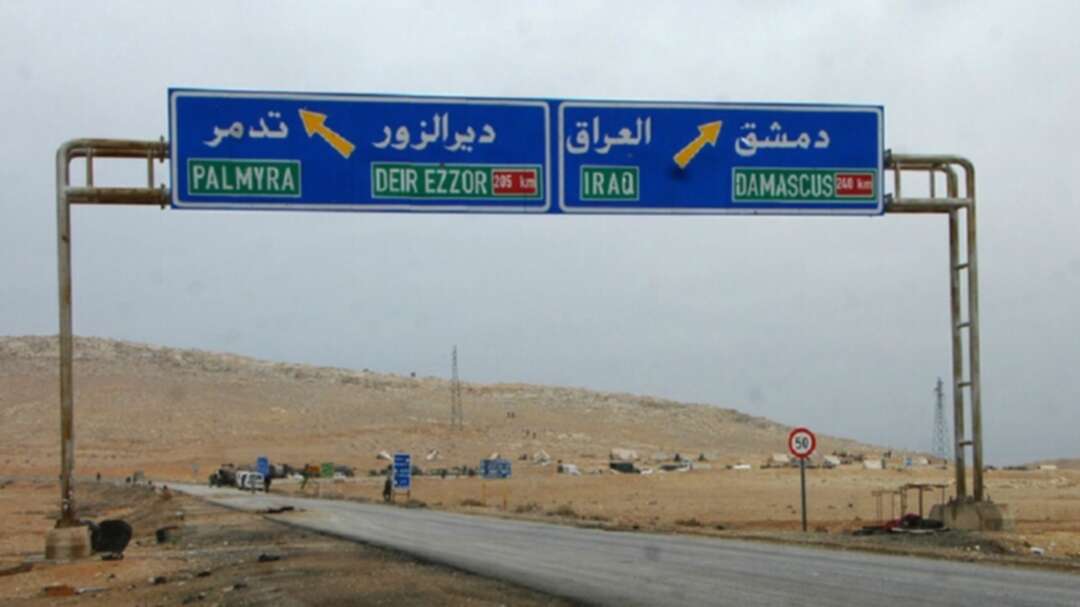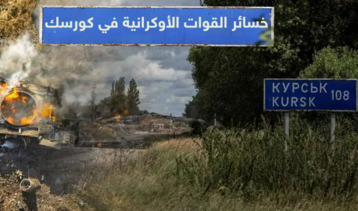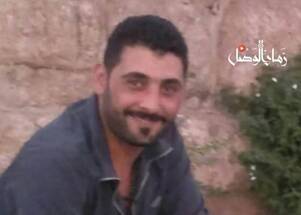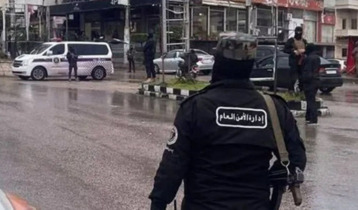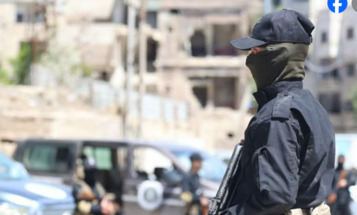-
As new Syrian exodus unfolds, some fear they will never go home
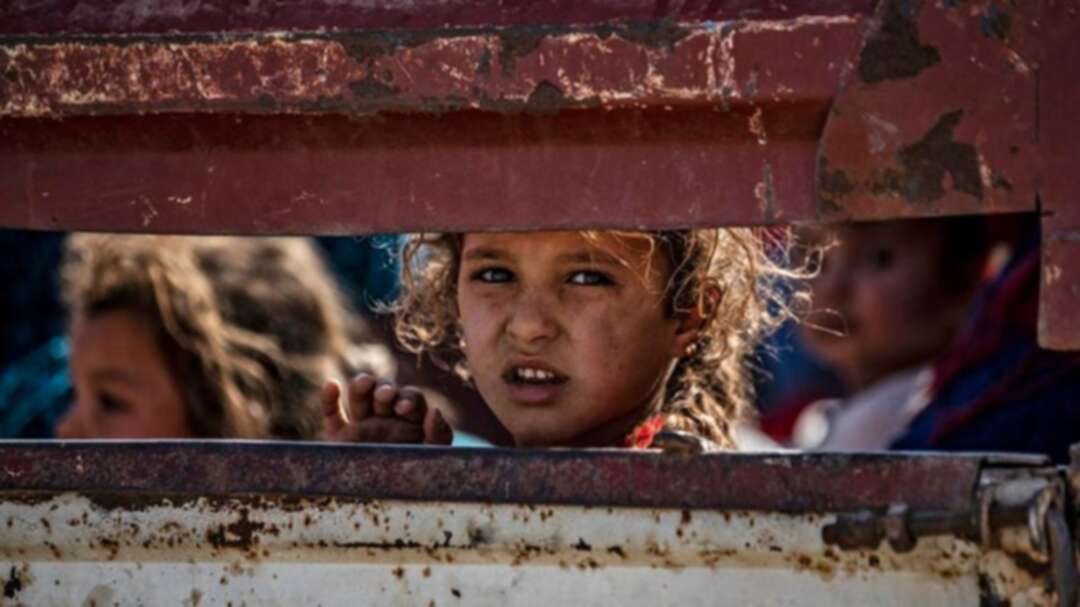
Kurdish doctor Farid Mustafa was one of the last to flee Ras al-Ain as Turkish bombs rained down on the Syrian border town.
He fears he may never return home.
He escaped on Thursday night with his wife and two small children as warplanes flew in the sky above a line of cars trying to get away from the border. A few people stayed behind to defend their homes.
“We were scared of the plane, not anything else,” he told Reuters. “Also my kids, I swear we’re not even worried about ourselves, but the kids. They were crying.”
Some 100,000 people have fled their homes since Turkey mounted its offensive in northeast Syria on Wednesday, moving away from the border and deeper into the region - which the Kurdish YPG militia and its allies control.
The exodus is the latest in Syria’s war that has already uprooted more than half of the population - some 11 million people - through years of multi-sided warfare which shattered the country.
Mustafa, with some 30 family members, is now staying at a relative’s house in the city of Hasaka, where many residents have opened up their homes.
He fears his Kurdish ethnicity would make him a target if his town of Ras al-Ain falls to Turkish forces and their Syrian allies, enemies of the YPG.
“I’m not worried about my house, let it be destroyed,” he said. “But what if my town is gone, what will I do?” he said.
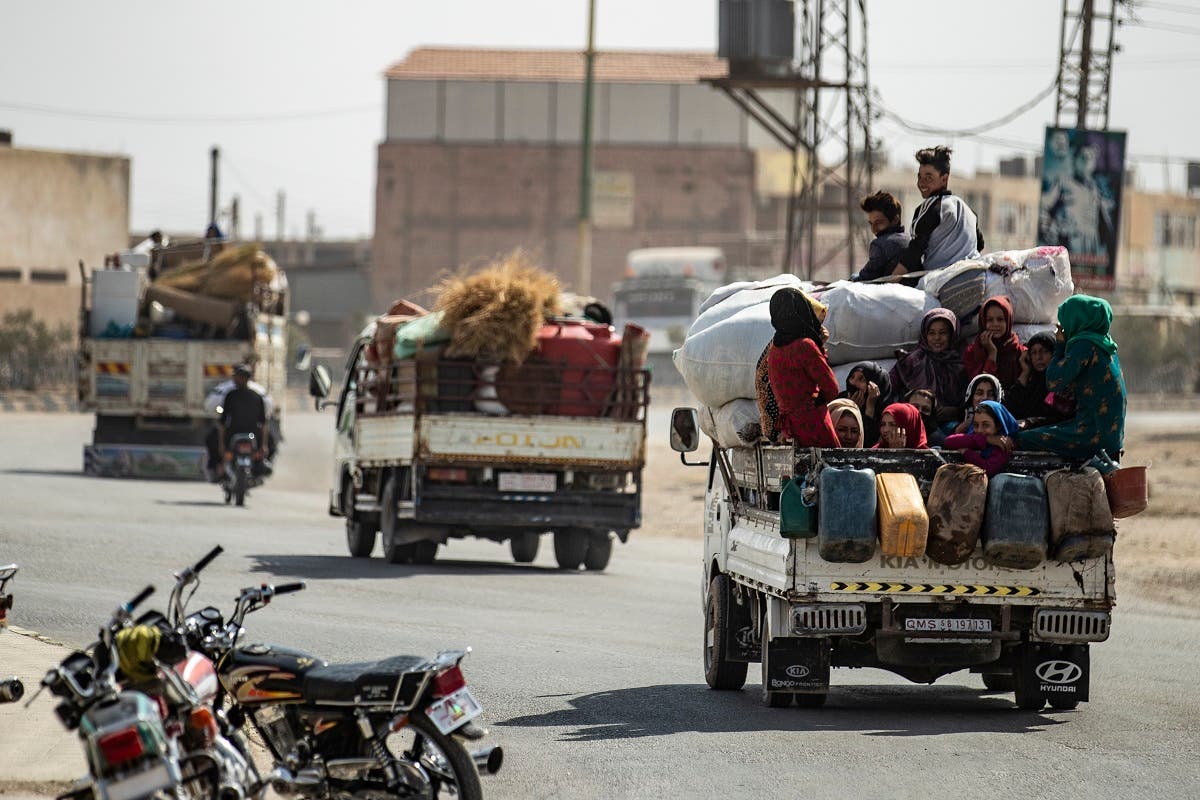 Displaced Syrians sit in the back of a pick up truck as Arab and Kurdish civilians flee amid Turkey’s military assault on Kurdish-controlled areas in northeastern Syria, on October 11, 2019. (AFP)
Displaced Syrians sit in the back of a pick up truck as Arab and Kurdish civilians flee amid Turkey’s military assault on Kurdish-controlled areas in northeastern Syria, on October 11, 2019. (AFP)Ankara brands the YPG a security threat because of links to the Kurdish PKK which has waged a long insurgency inside Turkey.
Turkey’s offensive, its third into northern Syria, kicked off after a withdrawal from part of the border of US forces, whose presence had until then deterred such an attack.
The Syrian Democratic Forces (SDF), which the YPG spearheads, decried the US move as betrayal after they fought alongside each other to crush ISIS across much of Syria.
Still, US forces have not all gone. Dozens of Syrians fled towards one of the US bases outside the mainly Kurdish town of Kobani after it was shelled, some taking their cattle with them, a witness and a local official said.
Kobani was the birthplace of the US-YPG military alliance some five years ago, when Washington intervened with air strikes to help Kurdish fighters turn the tide against ISIS.
Kurdish leaders see their region as a relatively stable part of Syria that has enjoyed autonomy for years, shielded from Turkey and the Damascus government by the presence of US forces.
Having lost fighters in the war against ISIS and played a critical role in helping to defeat the extremists, long-persecuted Syrian Kurds had hoped to shore up their autonomy within a reformed Syrian state.
That now looks in jeopardy. The Turkish offensive deals yet another blow to an ethnic group left stateless when the Ottoman Empire collapsed a century ago and the Kurds were scattered between Syria, Iraq, Iran and Turkey.
Turkish President Recep Tayyip Erdogan says he wants to settle up to two million Syrian refugees, many of them Sunni Arabs, into the region targeted in the operation dubbed “Peace Spring.”
Sleeping in the streets
The road to Hasaka was choked by traffic earlier this week as people fled Ras al-Ain.
The city is now crammed with people, and authorities do not have enough water tankers, food, or shelter for the influx, said Khaled Ibrahim, a Kurdish official who oversees aid efforts in the northeast.
“I saw people who could not make it to Hasaka, sleeping in the streets, on the pavement, in the public gardens,” Ibrahim said.
The ethnically mixed northeast region is home to some 1.5-2 million people, many of them uprooted from other parts of Syria.
Semira Haj Ali, the head of the education board in the region, said teaching had stopped so that schools could provide shelter.
“We opened schools in Hasaka, and even wedding halls, anywhere there’s room, to shelter the displaced families. We are expecting more to come,” she said.
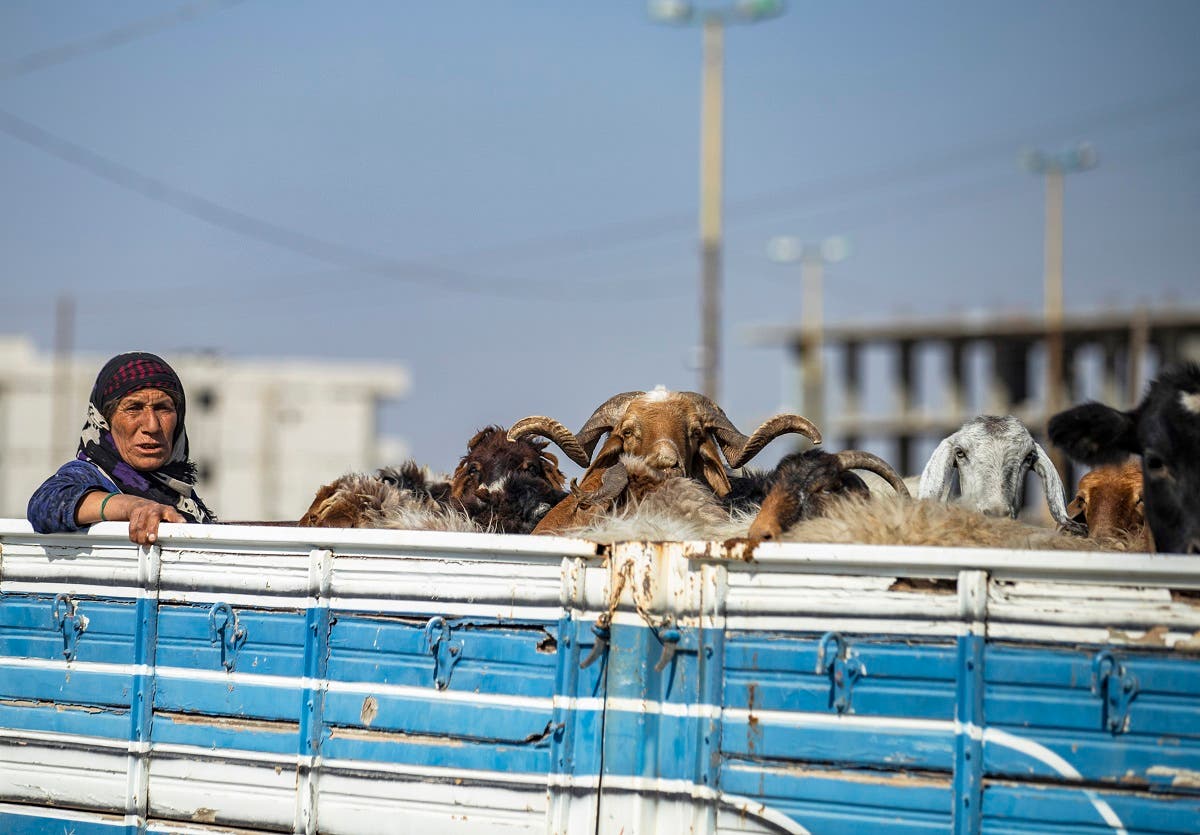 Dozens of Syrians fled toward one of the US bases outside the mainly Kurdish town of Kobani after it was shelled, (File photo AFP)
Dozens of Syrians fled toward one of the US bases outside the mainly Kurdish town of Kobani after it was shelled, (File photo AFP)Most of the people fleeing so far have come from the border towns of Tel Abyad and Ras al-Ain, the current focal point of the Turkish assault.
But people have been on the move elsewhere too.
Hemrin Mahmoud and her sister, both pregnant, fled their homes right on the border in Qamishli to safer parts of the city, along with their six children.
“Naturally, our husbands stayed in their homes to take up arms. What else are we going to do?”
“There was the sound of bullets, my children were afraid, crying, I got them out of the house,” said Mahmoud, 35.
They are sheltering at the home of another sister.
Walid Mamo, their brother-in-law, said he had stocked up on supplies. “I bought 3,000 lira worth of bread today - 100 loaves. I’ve put them in the freezer,” he said.
You May Also Like
Popular Posts
Caricature
BENEFIT Sponsors BuildHer...
- April 23, 2025
BENEFIT, the Kingdom’s innovator and leading company in Fintech and electronic financial transactions service, has sponsored the BuildHer CityHack 2025 Hackathon, a two-day event spearheaded by the College of Engineering and Technology at the Royal University for Women (RUW).
Aimed at secondary school students, the event brought together a distinguished group of academic professionals and technology experts to mentor and inspire young participants.
More than 100 high school students from across the Kingdom of Bahrain took part in the hackathon, which featured an intensive programme of training workshops and hands-on sessions. These activities were tailored to enhance participants’ critical thinking, collaborative problem-solving, and team-building capabilities, while also encouraging the development of practical and sustainable solutions to contemporary challenges using modern technological tools.
BENEFIT’s Chief Executive Mr. Abdulwahed AlJanahi, commented: “Our support for this educational hackathon reflects our long-term strategic vision to nurture the talents of emerging national youth and empower the next generation of accomplished female leaders in technology. By fostering creativity and innovation, we aim to contribute meaningfully to Bahrain’s comprehensive development goals and align with the aspirations outlined in the Kingdom’s Vision 2030—an ambition in which BENEFIT plays a central role.”
Professor Riyadh Yousif Hamzah, President of the Royal University for Women, commented: “This initiative reflects our commitment to advancing women in STEM fields. We're cultivating a generation of creative, solution-driven female leaders who will drive national development. Our partnership with BENEFIT exemplifies the powerful synergy between academia and private sector in supporting educational innovation.”
Hanan Abdulla Hasan, Senior Manager, PR & Communication at BENEFIT, said: “We are honoured to collaborate with RUW in supporting this remarkable technology-focused event. It highlights our commitment to social responsibility, and our ongoing efforts to enhance the digital and innovation capabilities of young Bahraini women and foster their ability to harness technological tools in the service of a smarter, more sustainable future.”
For his part, Dr. Humam ElAgha, Acting Dean of the College of Engineering and Technology at the University, said: “BuildHer CityHack 2025 embodies our hands-on approach to education. By tackling real-world problems through creative thinking and sustainable solutions, we're preparing women to thrive in the knowledge economy – a cornerstone of the University's vision.”
opinion
Report
ads
Newsletter
Subscribe to our mailing list to get the new updates!

